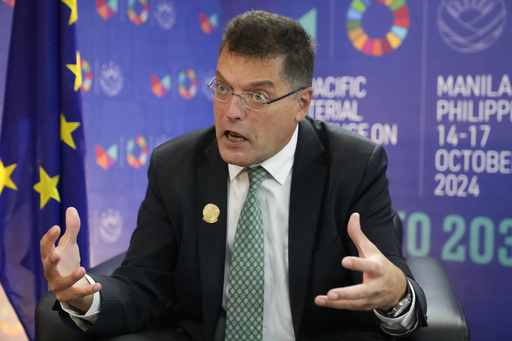
Disasters, particularly those caused by increasingly severe storms, pose significant threats to populations and could impede economic advancement in the Asia Pacific if governments do not make substantial investments in disaster prevention and mitigation strategies, a United Nations official emphasized. This warning was delivered by U.N. Assistant Secretary-General Kamal Kishore during the opening of a regional conference on disaster risk reduction in Manila, which is recognized as one of the countries most susceptible to disasters worldwide.
Kishore stated that the rising frequency of disasters is impacting an unprecedented number of individuals, threatening their safety and livelihoods. His remarks were made to a gathering of hundreds at the three-day event, which gathered ministers responsible for disaster management across the Asia Pacific. He cautioned that if these risks are not addressed, they could jeopardize the developmental goals of the region, reversing decades of progress made in various sectors.
He recommended that countries in the Asia Pacific should consistently reserve significant portions of their national budgets for disaster risk reduction initiatives. Furthermore, he urged that a larger share of international aid should be redirected toward prevention efforts rather than merely focusing on responses to disasters. Kishore noted that investments in these areas have resulted in a decline in mortality rates related to such disasters, highlighting that while fatalities still occur, they are significantly lower than in the past.
The discussions at the conference concentrated on enhancements in disaster warning systems, the exchange of technology, and the development of infrastructure, homes, and workplaces that are more resilient to disasters. The Philippines, which is co-hosting the conference, is particularly vulnerable due to its geographic location, situated between the Pacific Ocean and the South China Sea, where an average of 20 typhoons strike annually. Additionally, it is positioned within the Pacific “Ring of Fire,” an area with high geological activity, including earthquakes and volcanic eruptions.
“Increasingly severe hazards, exacerbated by climate change, compound the challenges faced by the Philippines and worsen our vulnerability,” stated President Ferdinand Marcos Jr. in his keynote address at the conference. He noted that with improved access to funding, technology, and information, the most at-risk nations could enhance their resilience against such challenges.
European Union Commissioner for Crisis Management, Janez Lenar?i?, attended the conference to emphasize the necessity for stronger international collaboration as countries confront a “new reality” that includes the rising frequency and intensity of weather-related calamities. “No nation can address these challenges in isolation,” he remarked, stressing that disasters are not confined by borders.
Since the year 2020, the European Union has provided over 80 million euros (approximately $87 million) to the Asia Pacific region to support initiatives focused on disaster preparedness and mitigation. Lenar?i? called upon wealthier nations to increase their contributions towards these important efforts. “The collective experiences of the region in disaster response and resilience can offer valuable insights,” he stated, highlighting the need for mutual learning between the Philippines and other Asian countries.
